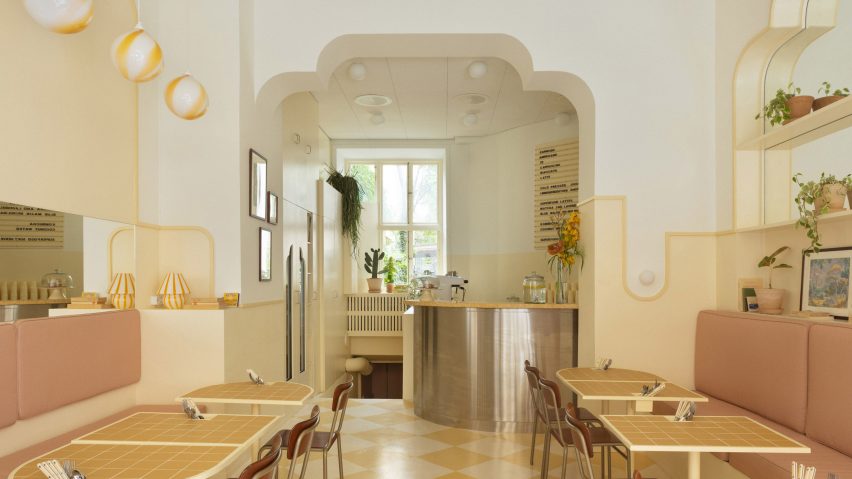
ASKA draws on Wes Anderson films for pastel-coloured Cafe Banacado design
Swedish architecture studio ASKA has created a pale-yellow interior informed by Wes Anderson movies and the aesthetics of Cuba for Stockholm restaurant Cafe Banacado.
The all-day breakfast cafe has a colour palette of muted yellows, brown and cream hues, deliberately chosen to evoke the sun-drenched bars and cafes in more southern climates.
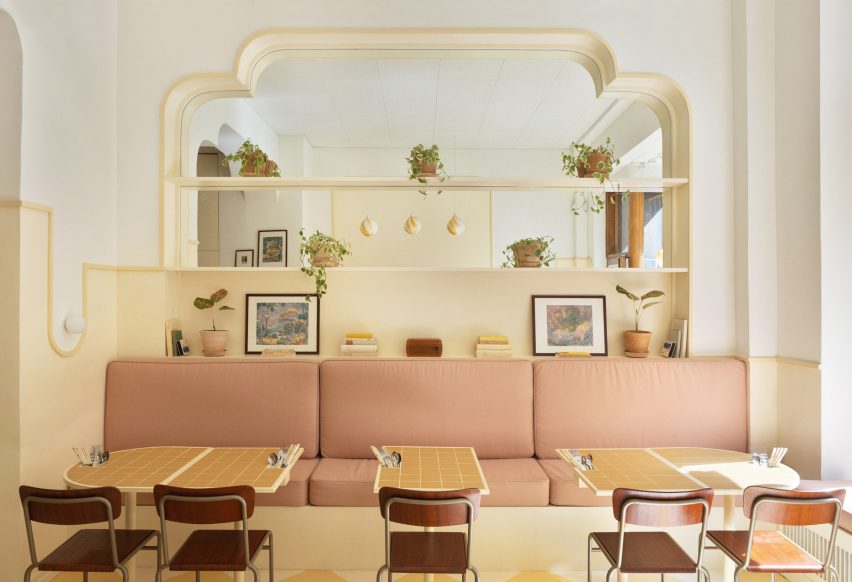
The cafe's painted checkerboard floor is a reference to Cuba, and the space features a number of vintage touches – including a wall decked out in Polaroid pictures and an LP player – that add to its nostalgic feel.
"In order to create an environment that evokes a sense of 'time stood still' it felt natural to search for inspiration from the aesthetics seen in Cuba, as the design language found there follows classical timeless shapes while at the same time integrating retro and vintage elements," ASKA co-founder Polina Sandström told Dezeen.
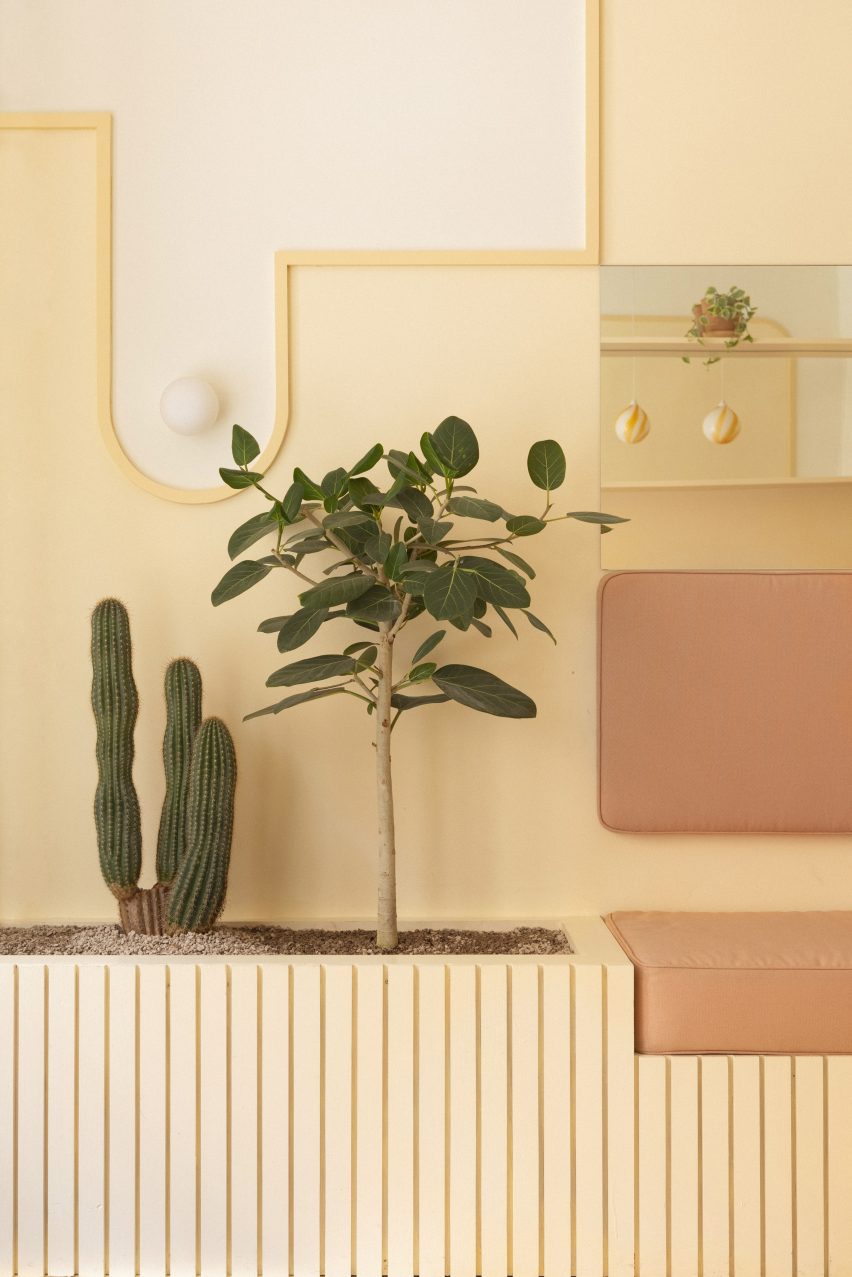
Cafe Banacado also nods to American filmmaker Wes Anderson's dreamy retro style.
"The composition of the interior references the aesthetics of a Wes Anderson movie, as his motives often follow a strong symmetry and are built from a one-point perspective," Sandström explained.
"That sense of constructed perfection makes a space feel somewhat unreal."
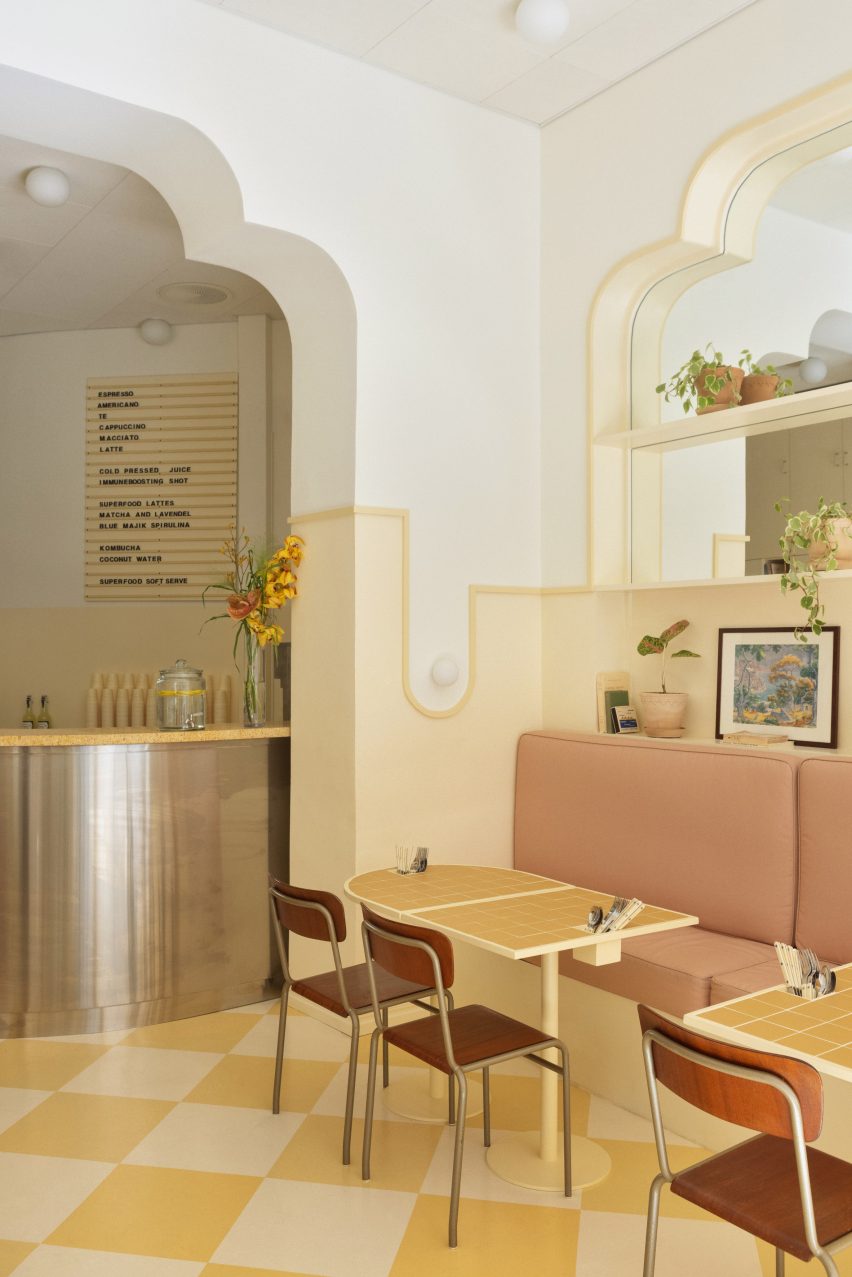
The 70-square-metre cafe has built-in sofas with comfortable pale-brown cushions, as well as small tables specially designed by ASKA for the space.
These were made from yellow tiles with ochre grout, to match the yellow-and-cream chequered floor, and feature functional integrated cutlery holders.
The colour scheme was decided on as a way of creating a harmonious interior by using subtle tonal changes.
"When working with colour, it's always a fine line between being too bold or too cautious," ASKA co-founder Madeleine Klingspor said.
"In order to create an environment that feels harmonious we work with subtle layering and tone in tone methods. The same yellow is used on the walls, lamps, tables and floor but in different scales and intensity."
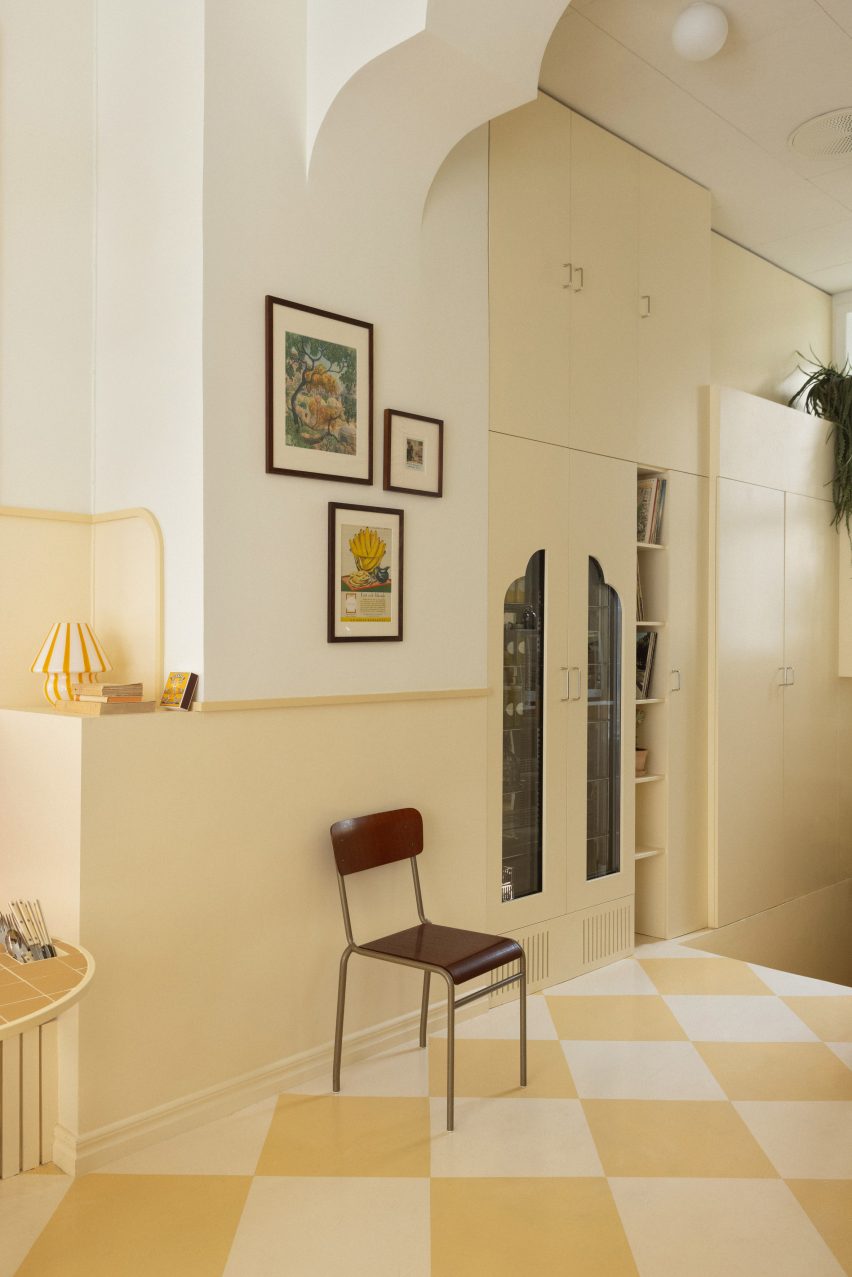
Using yellow throughout also helped give the cafe a warm, sunny feel.
"When the sun appears, it filters through the yellow awning filling the space with a warm embrace, both visually and physically," Klingspor added.
ASKA added large form-cut mirrors and chose "natural and timeless" materials for Cafe Banacado – including wood and stainless steel – that would develop a patina over time.
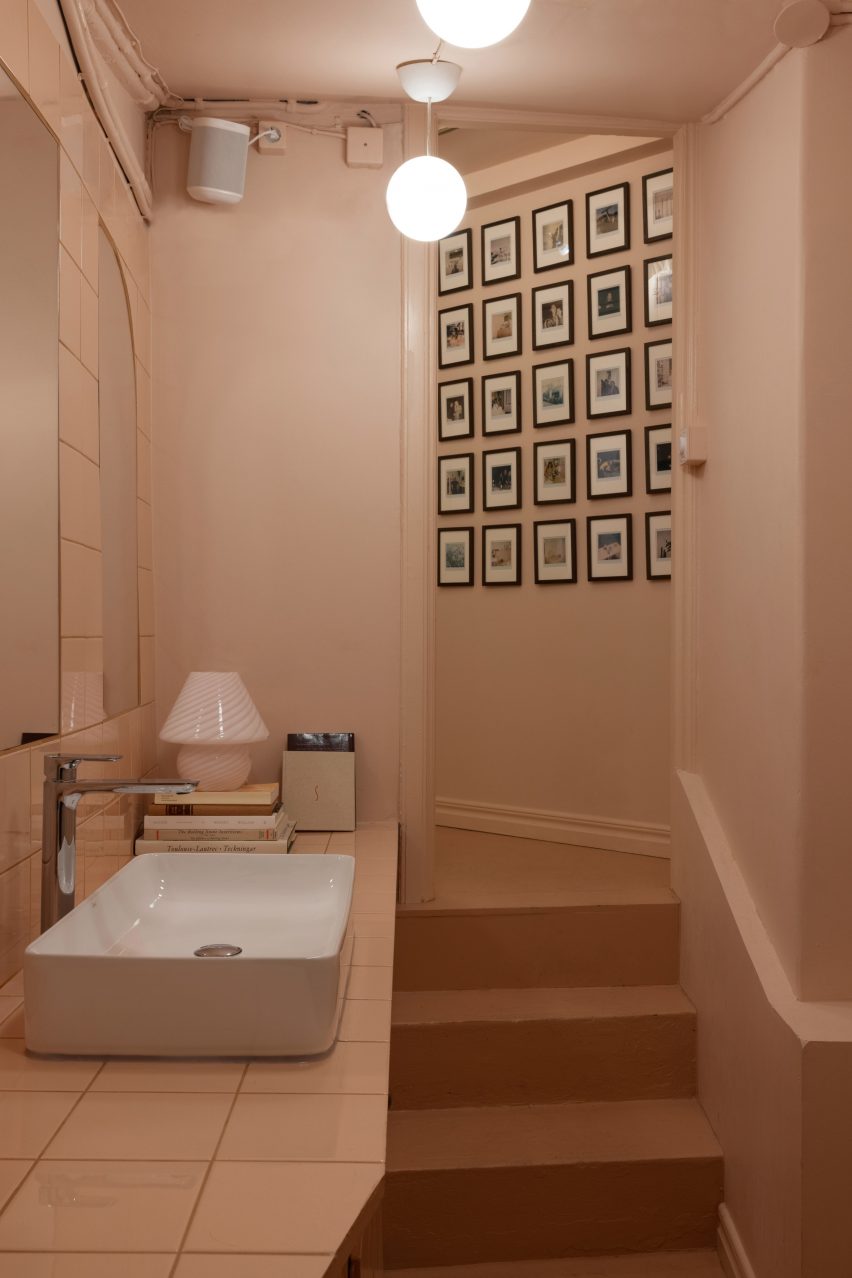
"For instance, the painted concrete floor and the vintage chairs already bear the mark of time," Sandström said.
"The vintage chairs in teak together with the frames in dark brown wood also adds a matureness to the overall pale colour scheme. While the mirrors, terrazzo and stainless steel adds a luxurious feel to the space."
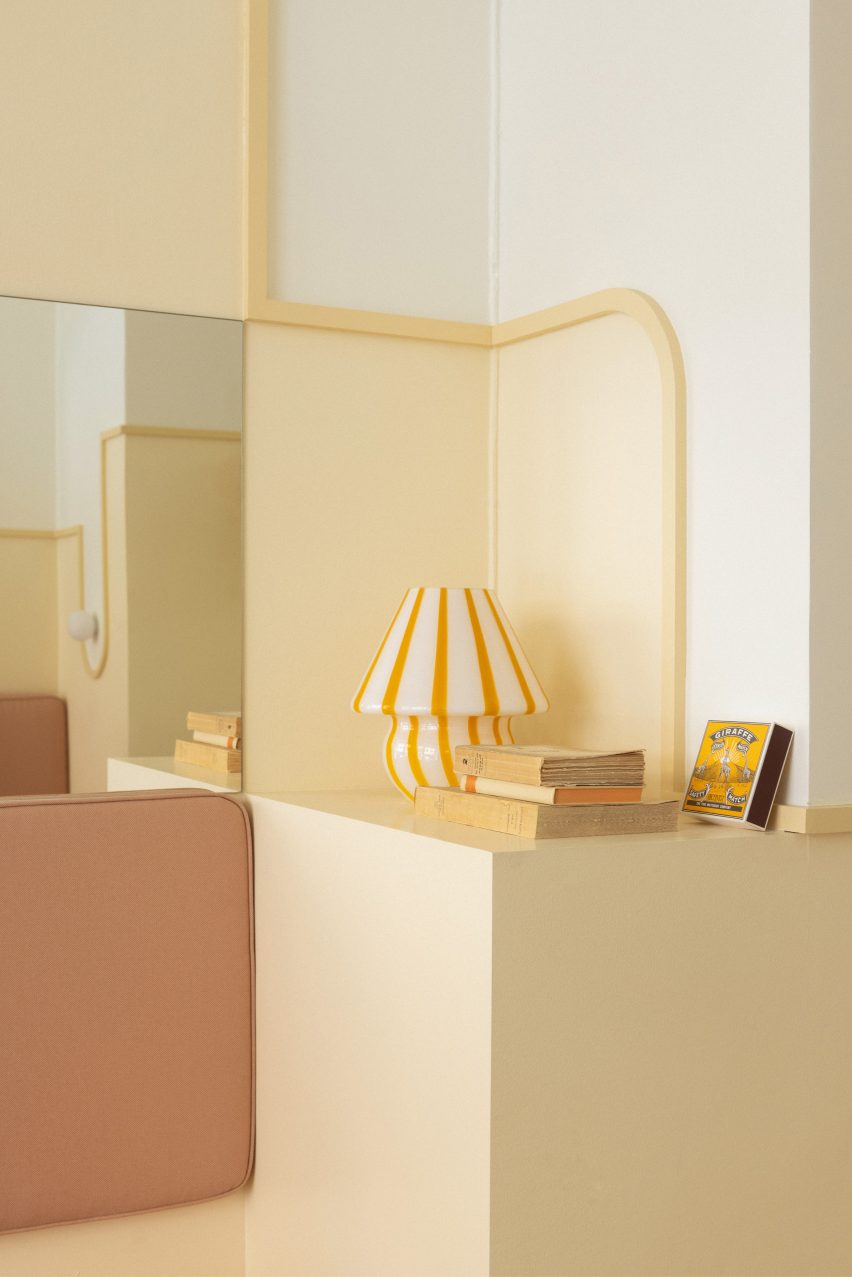
To decorate the space, the designers commissioned custom-made hand-blown lamps in striped glass by glass artist Ulla Gustafsson, which are reminiscent of traditional Swedish polka caramels.
Artworks by impressionist painter Carl Palmé are dotted around the space alongside vinyl records and potted plants.
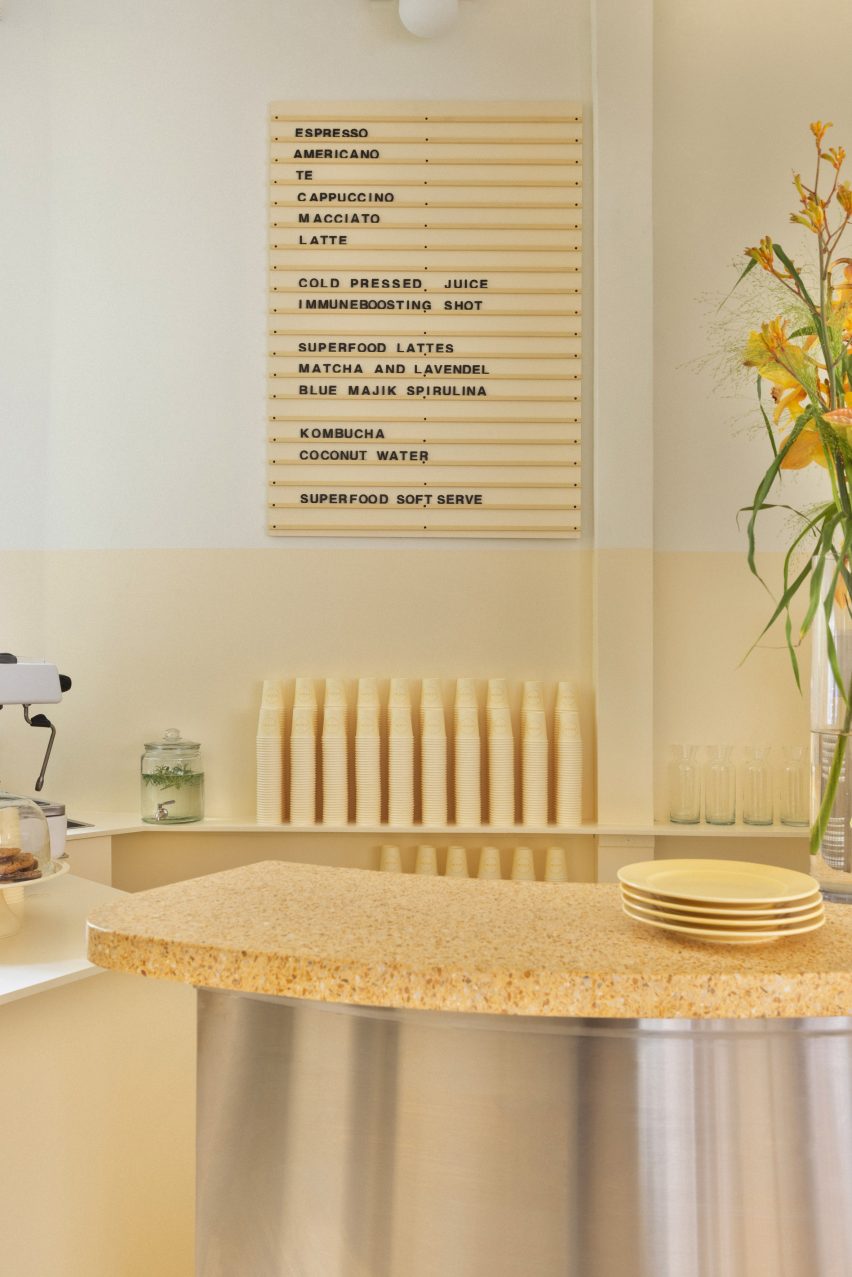
As well as the interior design and some of the furniture, the architects also created the graphic design and logotype for the cafe, which is located in Stockholm's Vasastan neighbourhood.
ASKA has previously designed the pastel interiors for the refurbishment of the Maria Nila headquarters in Stockholm and created an escapist TV set for the city's design week.
Photography is by Mikael Lundblad.